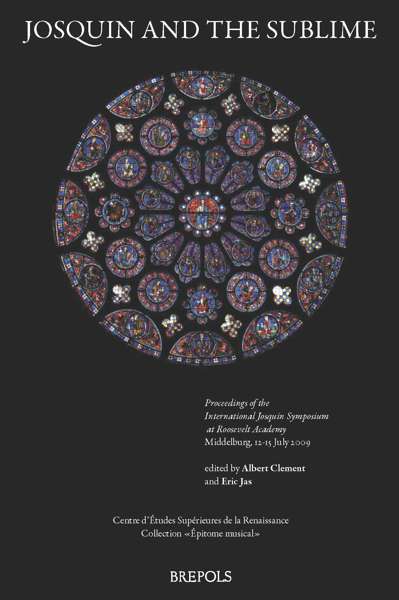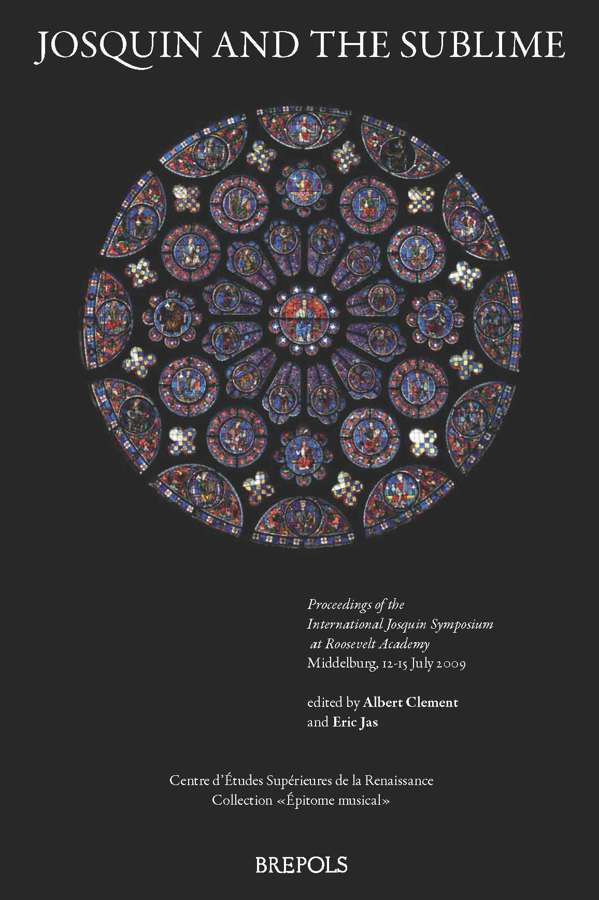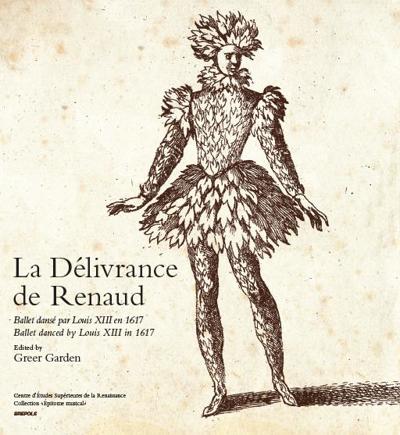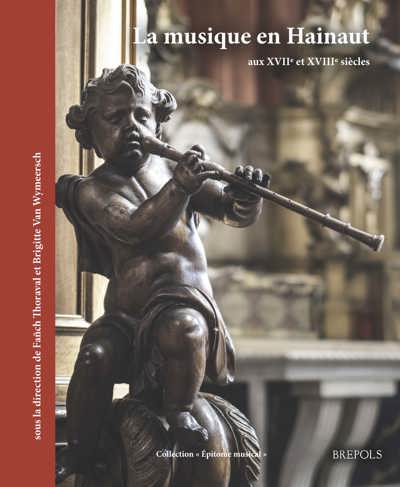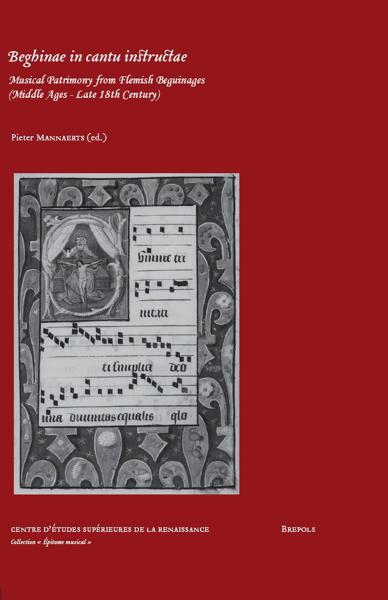
Josquin and the Sublime
Proceedings of the International Josquin Symposium at Roosevelt Academy, Middelburg, 12-15 July 2009
Albert Clement, Eric Jas (eds)
- Pages: 247 p.
- Size:190 x 290 mm
- Illustrations:7 col.
- Language(s):English
- Publication Year:2012
- € 75,00 EXCL. VAT RETAIL PRICE
- ISBN: 978-2-503-54271-3
- Paperback
- Out of Print
"It's a delightful, inspiring, academically impeccable, relavant generous and highly relevant contribution to musicology. Warmly recommended." (Mark Sealey, in Classical Net, www.classical.net/music/books/reviews/2503542719a.php)
"(...) these two edited volumes arising from specialist conferences provide a great service to scholarship on the music of Josquin and his contemporaries. It is heartening that the publisher of both volumes, Brepols, took on these projects and facilitated very high-quality outcomes in terms of both the research findings and the editorical excellence. Readers will find especially useful how contributors take stock of the existing state of play in their respective topics and pursue often quite different goals that expand the breadth of methodological enquiry, dispel some previously held assumptions, and encourage ever more nuanced scrutiny of the many levels of musical culture operating upon a rich repertoire." (Denis Collins, in: Journal of the Society for Musicology in Ireland, 10, 2014-15, p. 57-64. Reviewed together with The Motet Around 1500: On the Relationship of Imitation and Text Treatment?)
The principal goal of this collection is to investigate and discover elements in Josquin’s musical style that have won the composer his unequalled reputation, a reputation that has been described in the most laudatory words from the beginning of the 16th century onwards. If Josquin’s talent ‘has brought all the arts to life’ (anonymous distich, Basilica of S. Sisto in Piacenca, 1514) indeed, if ‘his genius is indescribable and we can be amazed at it more than we can treat it worthily’ (Glarean, Dodecachordon), and if he truly ‘has opened the eyes of all those who rejoice in his art or who will rejoice in the future’ (Cosimo Bartoli, Ragionamenti accademici), then we can safely state that many of his compositions must be nothing less than ‘sublime’. This book presents the Proceedings of the Middelburg symposium. It contains twelve studies devoted to Josquin’s sacred music, secular works, and to matters of reception. Josquin’s compositional crafts are addressed extensively and attention is paid to e.g. his brilliant treatment of pre-existing musical material, his unparalleled skill in the quotation of chant, and his expressive use of modes and musica ficta. But concentrating on particularities of structure and style as well as on such techniques as parallel motion and stretta imitation may, as it appears, also inform us about the sublime in Josquin. Remarkably, the story of sources that gave Josquin his unequalled reputation in the history of Western music has so far never been told; this is why these sources are presented as final contribution to this volume in categories according to the nature of their texts.
